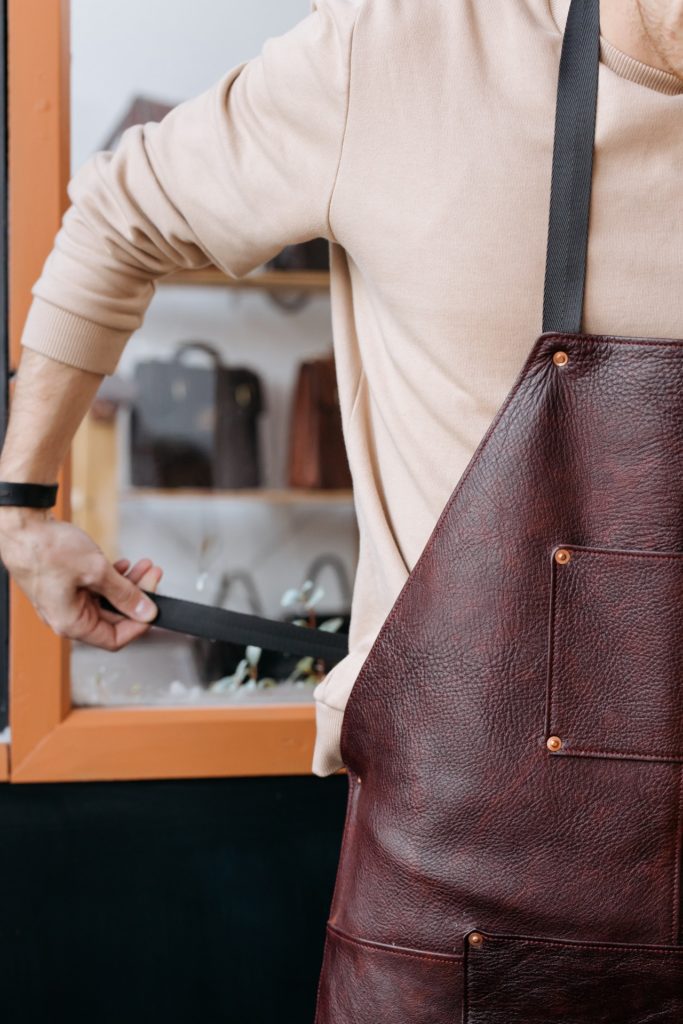By Dorotea Saputo
The best writing advice I’ve ever received came from my grandfather who bragged about never having read a book in his life.
He was smoking his pipe, sitting on the back porch. I was staring at the sky through the weeping willow when he cleared his throat and said: ‘Aim for rejections, don’t fear them. Finish your story and send it.’
I wondered if somebody had spiked his tobacco: my grandfather wasn’t the type of man who started a conversation if he could enjoy the silence.
‘It’s not good,’ I muttered.
‘Of course, it’s not good. But that isn’t the reason you haven’t sent it.’
For the first time, I wished he’d kept silent.
‘Creative people have egos like gigantic rice paper cathedrals,’ he said, blowing out a nebula of spicy smoke. ‘The smallest of pressures and they collapse.’
He went inside, leaving his chair rocking alone and me dealing with the thousand fragments of my collapsed cathedral.
‘Look at this,’ he said when he returned. He was holding in front of me what looked like an apron. I’d learnt from him how to recognise a finely tailored piece of clothing, and that wasn’t one.
‘Who sewed that?’ I sneered.
‘I did!’ he confessed, leaving me utterly agape. ‘I was fifteen when I showed this to Mr Vitali and asked him to take me on as an apprentice. “Not good”, he said, “make one in linen, with pockets.” So I did. Then, he asked for another one and another one. I sewed each apron to the best of my abilities, and each time it was not good. I worked with different fabrics, buttons, pleats, buckles, zippers, anything he asked for, I–’
‘Did he eventually accept you?’
He gave me the look of an old man who doesn’t talk much and is expecting not to be interrupted when he does.
‘I kept sewing,’ he continued, ‘until my eyes burnt and my back hurt. By the one-hundredth rejection–’
‘One hundred!’ I shouted and immediately regretted it.
‘I realised’, he resumed patiently, ‘I realised that I didn’t tolerate all those rejections because I wanted to be a tailor. Somewhere along the way, I had become a tailor, and that’s why I tolerated all those rejections.’
He put down the ugly apron and returned to his chair. In the moment of silence that followed, his words had sunk inside me like a solid foundation.
‘It took me 101 aprons,’ he said calmly, ‘for Mr Vitali to see me for what I was. That day, I walked into his shop with this apron.’
He was talking about the one he was wearing, in brown canvas with leather borders and pockets for tools. At that moment I realised I’d never seen him without it.
‘When Mr Vitali saw me, he said, “What ya doin? Come finish this seam.” In the years I worked for him, he rarely spoke more words than that, but he taught me everything he knew. When he died, he left his shop and everything in it to me.’
‘Remember,’ my grandfather said, rocking back in his chair, ‘rejections only hurt fragile egos: strong spirits take them for what they are – finished products nobody likes until somebody does.’
That was all my grandfather had to say on the subject. Then, he finished his pipe silently, as he always did.
So here I am, doing my best. Sending this story. Waiting for another rejection.
About the Author

Dorotea Saputo is Italian with a doctorate in Philosophy. She left Sicily a few years after graduation and moved to the UK to live and work. She then continued her journey by moving to Austria, Malta and Montenegro. Now she lives in Estonia with her husband, dreaming of one day returning permanently to Sicily, where it all started.
She is passionate about books, fascinated by words and intrigued by the creative process behind storytelling. After completing an online writing course with the Italian Belleville School, she challenged herself further with a course in English. She is currently participating in the Write a Novel Course at The Writers College.












